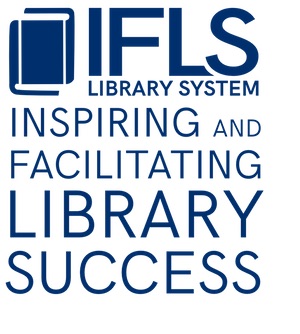On Friday morning of the Power Up Conference, I attended two back-to-back sessions about inclusion that set me to wondering. The first was called But I Loved That Book as a Kid: Leading Staff to More Inclusive Practices with Angie Manfredi. The second was Um, Did You Know You Have a Drag Queen Leading Storytime? with staff from the Beloit Public Library and their partner agency.
In the first session, Angie discussed ways libraries can interrupt racism and make our library programs, collections, and environments more inclusive. She strongly advocated not having programs that include Santa, the Easter Bunny, or other characters associated with Christian traditions so that everyone can feel welcome at all library programs.
We should think long and hard about holiday decorations, playing Christmas music on our speakers, or incorporating Christmas or Easter elements into regular storytimes. People who don’t celebrate these holidays are inundated everywhere, especially with the commercial aspects of Christmas and Easter. Keeping our decorations more neutral makes it clear that our space is really for everyone in the community, whether or not they celebrate a particular holiday.
I know many libraries have a wonderful community turn-out at special events where Santa and his reindeer are present, or Mrs. Claus stops by with cookies, or where the library is one stop in a huge community-wide Christmas festival or Easter Egg Hunt. Angie urged libraries to stop any programming like this. I’m a little ambivalent. We need to think about how much time, energy, and budget goes into promoting and providing programs like this, and if there is a dearth of other programs available during this time period. But tradition and community connections and expectations are compelling, and I understand that.
I especially thought of this during the next session I attended. Drag Queen Storytime features a special guest drag queen (sometimes more than one), who often reads one or two stories, and leads a dance party. In Beloit, the library has worked for a few years with Yellow Brick Road, an LGBTQ support organization, to provide programming for adults and teens. They decided to put together a Drag Queen Story Time as a way to provide programming for young children and their families. Despite some challenges, negative attention, and controversy, the program was a success. Record numbers attended, and the parents of at least one child who is non-gender-conforming expressed sincere appreciation for the event. Parents interviewed for news programs indicated that this program allowed them to open up conversation about acceptance, diversity, and differences related to gender expression with their kids. It turned out to be completely worth the challenging conversations and controversies.
Attending these sessions back-to-back, I found myself wondering if it would be confusing to some patrons to have the library stop hosting a popular visit from Santa Claus because it wasn’t something that would be appealing or welcoming to all families, and at the same time hosting a Drag Queen story time and explaining to people who are alienated by it that not all programs are going to appeal to every family, and they could simply choose not to attend. I know there are complicating issues (separation of church and state; privilege; meeting unmet needs), but I still think it is potentially confusing. What does that mean? I guess that we need to think about it!
What do you think? How do you manage diverse community needs and make sure you are welcoming for everyone, despite the fact that there are items in your collection and programs in your buildings that will be objectionable to some members of your community? And how do you keep from defaulting to a bias that gives preference to people who already have a lot of privilege? I truly am interested in this conversation and would love to hear your opinions.
